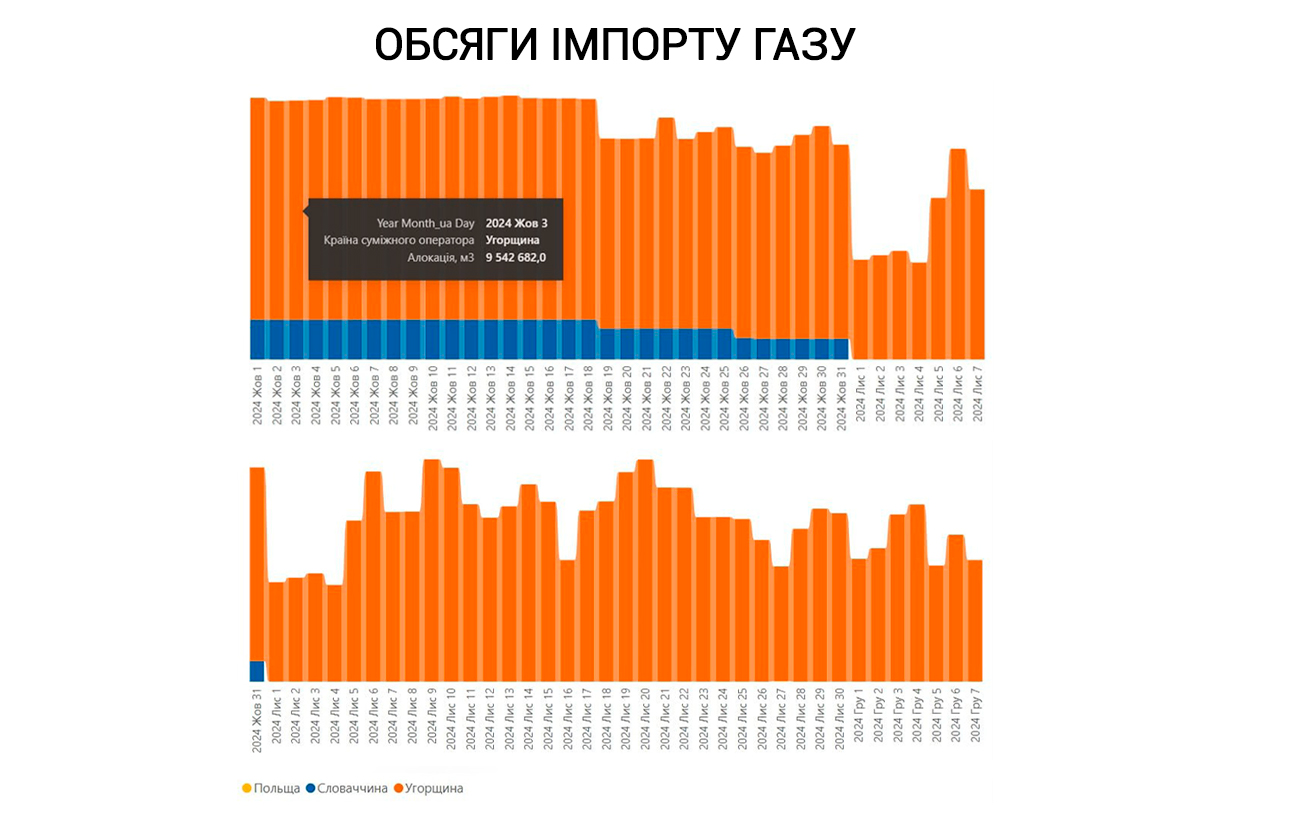Naftogaz lost an arbitration case in Stockholm against an Italian company, raising concerns about potential implications for Ukraine.
"Naftogaz of Ukraine" lost in arbitration in Stockholm to the Italian company IUGAS GmbH. The company will have to pay approximately 1.7 billion hryvnias, or its gas in Europe may be seized. What consequences could this arbitration decision have for Ukraine? Special correspondent of RBC-Ukraine Yuriy Doshchatov investigates.
The company "Naftogaz of Ukraine" lost the arbitration case in Stockholm against the Italian Italia Ukraina Gas (IUGAS). As a result, the state-owned company must pay approximately $41 million.
The arbitration ruling, made several months ago, is not publicly available. Such decisions are not mandatory for publication. However, RBC-Ukraine recently confirmed the existence of the ruling through several sources, including Naftogaz itself.
"By the final arbitration ruling dated August 29, 2024, the tribunal of the Stockholm Chamber of Commerce ordered Naftogaz of Ukraine to pay approximately $41 million to IUGAS under the natural gas supply contract," the company's comment for RBC-Ukraine stated.
History of the Dispute between Naftogaz and IUGAS
The arbitration disputes between IUGAS and Naftogaz have been ongoing since 2007. The Italian company approached arbitration regarding Naftogaz's failure to fulfill the terms of a contract from 2003. Under this agreement, Naftogaz committed to selling IUGAS 1.3 billion cubic meters of gas annually at a fixed price of $110 per thousand cubic meters until 2013. Ukraine planned to resell Turkmen gas, which it purchased at $50 per thousand cubic meters, aiming to earn $780 million a year.
However, the contract was never executed. In 2004-2005, gas supplies were not conducted due to the absence of an agreement with the Slovak SPP for its transportation. By 2006, all Turkmen gas was purchased by Gazprom.
As a result, IUGAS filed for arbitration claiming compensation of $3.9 billion for non-fulfillment of the contract. A final decision on this issue was reached at the end of 2012. The arbitration rejected most of Naftogaz's claims and ordered the company to pay IUGAS only $12.7 million in penalties. According to reports, the Ukrainian side had arguments suggesting that the contract might have contained elements of corrupt intentions, but the arbitration deemed these arguments insufficient and did not consider them in its decision.
However, the execution of the arbitration ruling was delayed. Only in 2017 did IUGAS initiate actions to enforce it. These proceedings took place in Slovakia, as the main gas flows transit through this country, making it easier to "intercept" and seize gas. The Slovak court, as part of the enforcement process, seized gas purchased by Naftogaz and imposed storage obligations on the Ukrainian company.
The seized gas was later sold, but Naftogaz refused to pay for its storage. The company argued that such a requirement was unfounded since it had not received confirmation of the storage fact and the methodology for tariff formation. According to RBC-Ukraine sources, the storage fee could amount to around $22 million.
Following this, IUGAS underwent changes in ownership – there were claims against Andrea Miele, the signatory of the contract from the Italian side, from local law enforcement agencies.
Was Naftogaz Prepared for the Loss?
New owners of IUGAS filed a second claim in the Stockholm arbitration in December 2020, seeking around $110 million. As clarified by Naftogaz, this sum was determined as compensation for the under-delivery of gas under the same contract from January 2011 to December 2013.
On August 29, 2024, the claim was partially satisfied. Consequently, the ruling obliges Naftogaz to pay IUGAS approximately $41 million.
Naftogaz had anticipated such a decision and reserved funds amounting to 1.9 billion hryvnias – which even slightly exceeds the amount demanded for payment. Thus, the necessity of this payment will not affect Naftogaz's financial results for the end of 2024.
 "Naftogaz" lost the arbitration in Stockholm (photo: Getty Images)
"Naftogaz" lost the arbitration in Stockholm (photo: Getty Images)
Challenging arbitration decisions is quite difficult – there must be serious reasons and compelling arguments. It is worth noting that the arbitration rulings between Naftogaz and Gazprom in 2018 regarding gas supply and transit contracts were virtually not contested by the parties, even though both were not completely satisfied with the outcome.
However, even contesting the arbitration ruling does not halt the execution process. Therefore, there are two options – either Naftogaz pays $40 million, or the company's assets, primarily the purchased gas, may be seized.
Currently, there is no information indicating that Naftogaz has taken any steps to comply with the arbitration ruling. There are restrictions on transferring currency abroad. However, in certain cases, the National Bank allows transactions based on the Cabinet of Ministers' presentation. According to the NBU, such decisions have already been made for DTEK, Metinvest, Interpipe, and other companies when they needed to pay for Eurobonds or fulfill other obligations to creditors.
Gas May Be Taken for Debt
IUGAS has already initiated the enforcement of the ruling. According to sources, traders involved in selling gas to Naftogaz have warned the Ukrainian buyer about the possibility of gas seizure. This primarily concerns companies from Switzerland and Slovakia.
"Naftogaz" began purchasing gas in Europe in September. According to reports, there was a noted reduction in daily supplies through Slovakia in the second half of October. If at the beginning of the month they amounted to about 1.7 million cubic meters, by the end of the month it had decreased to 0.9 million. Sources in the gas market associate this specifically with actions taken to enforce the arbitration ruling. From November onward, imports through Slovakia ceased – this is confirmed by data from the Gas Transmission System Operator of Ukraine (OGTSU).
 Infographic by RBC-Ukraine based on OGTSU data
Infographic by RBC-Ukraine based on OGTSU data
The primary flow of imported gas to Ukraine is currently through Hungary. However, the change in route could theoretically have occurred not only due to the risks of gas seizure but also simply for commercial reasons – supplies through Hungary are cheaper.
There May Not Be Enough Gas in Winter
During the heating season, Ukraine may face a gas shortage, warns energy expert from the Center for European Policy Analysis (CEPA) and former head of OGTSU, Sergey Makogon. He suggests that the information regarding gas volumes in storage is, to put it mildly, not very accurate. By the beginning of the heating season, they aimed to accumulate 13.2 billion cubic meters of gas in underground storage. This included 4.51 billion cubic meters of buffer gas (long-term storage gas that is not used), 228 million cubic meters in storage in occupied territories, and 370 million cubic meters of gas from non-residents, which has already been almost completely exported from Ukraine.
Sources indicate that these figures are close to reality. If import supplies are reduced for any reason in the near future, there may be serious problems in the second half of winter and early spring. "With such reserves, we could end up with zero by the end of winter. There could be significant issues due to reduced pressure in underground storage, which would prevent us from extracting the necessary volume of gas," said a source in the oil and gas industry.
To mitigate risks associated with gas imports, which have already begun significantly late due to a lack of funds at Naftogaz, the company, together with the government, must resolve the payment issue as quickly as possible. For this, the Cabinet of Ministers should approach the National Bank to request permission to execute the arbitration ruling. According to RBC-Ukraine, such an initiative has not yet been made.
The government did not provide an official comment on this matter to the publication. However, it is surprising that more than three months have passed since the Stockholm ruling was made, and the issue of its execution remains unresolved. According to unofficial information, Naftogaz is currently not inclined to pay. Nevertheless, the company "is taking all possible measures to resolve this issue," RBC-Ukraine was informed by Naftogaz.